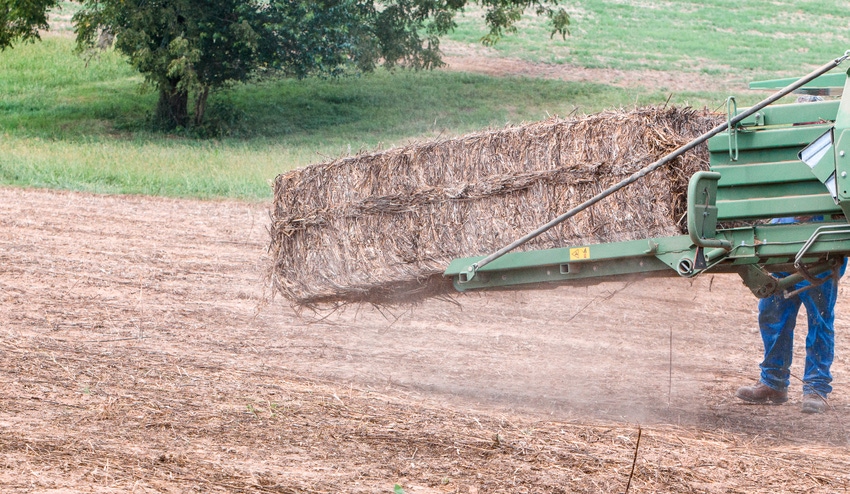
Mitch McConnell used his hemp pen to sign the 2018 House and Senate Farm Bill Conference Report, which recently passed both chambers. It was reported McConnell offered use of his hemp pen to President Donald Trump when he signed the legislation into official law Dec. 20.
The Agriculture Improvement Act of 2018 was kind to hemp enthusiasts and included language championed by McConnell, the U.S. Senate majority leader and Kentucky’s senior senator, to bolster the crop’s production and to officially remove hemp from the Controlled Substances Act, which means it will no longer be an illegal substance under federal law.
(EDITOR’S NOTE: This article was edited Dec. 28 to remove a statement on estimated annual U.S. retail hemp sales, which appeared in the ninth paragraph of a previous version, that stated annual hemp sales of $300 million. The estimate is closer to $800 million, according to some industry journals.)
The language was a continuation of efforts first laid down in the 2014 farm bill, which opened the legal door to expanded hemp production research and pilot programs in the country, largely due to McConnell’s Kentucky-backed support for the crop at the time.
Kentucky wants to be the top hemp state, and industrial hemp is finding a small but solid footing in the state’s agricultural economy. According to the Kentucky Department of Agriculture, in 2018, Kentucky’s farmers planted 6,700 acres of hemp, 3,200 acres more than they did in 2017. In 2016, they grew 2,350, and in 2015 grew 922 acres. In 2014, the first year of the program, they grew 33 acres.
In addition to 210 grower participants in 2018, 72 hemp processors are conducting research as part of the KDA’s hemp program.
Kentucky Agriculture Commissioner Ryan Quarles Dec. 20 submitted the state's regulatory framework for hemp to USDA for approval, which the 2018 farm bill requires states to do. Kentucky was the first state to apply for USDA hemp program approval. The new bill allows hemp growers access to USDA programs such as crop insurance, too.
The new farm bill allows legal hemp cultivation across the country, but the cultivated crop must have a level of psychoactive delta-9-tetrahydrocannabinol (or THC, the stuff found in higher doses in hemp’s shady cousin marijuana) no higher than 0.3 percent on a dry weight basis.
Soon following the farm bill signing on Dec. 20, Federal Drug Agency Commissioner Scott Gottlieb released a lengthy statement acknowledging hemp’s new legal status, but also said, “Congress explicitly preserved the agency’s current authority to regulate products containing cannabis or cannabis-derived compounds under the Federal Food, Drug and Cosmetic Act, and section 351 of the Public Health Service Act.”
More than 30 nations grow industrial hemp as an agricultural commodity. Up until now, the United States was the only industrialized nation that didn’t allow industrial hemp production.
So, will hemp become a major U.S. commodity? Likely not, but I don’t think that’s the point. It does proffer an alternative crop for some growers. In Kentucky, and to a certain extent now in Tennessee, it is being put forth as a possible viable alternative to tobacco, and both crops share some production practices and possible mechanization and handling equipment, too.
Kentucky is in the lead it seems on hemp, but is there a race? I don’t’ know, but it does appear other Southeastern states want a piece of hemp, or at least explore its possibilities. The state that can lure processors and infrastructure based on strong research-based knowledge and education — and entice growers — will likely find the niche market hemp offers will be worth it.
Up until the new farm bill, Georgia was the only Southeastern state that didn’t allow the cultivation of hemp commercially, research or pilot programs. But Georgia has adopted a resolution to create the House Study Committee on Industrial Hemp Production, according to the National Conference of State Legislators.
About the Author(s)
You May Also Like






